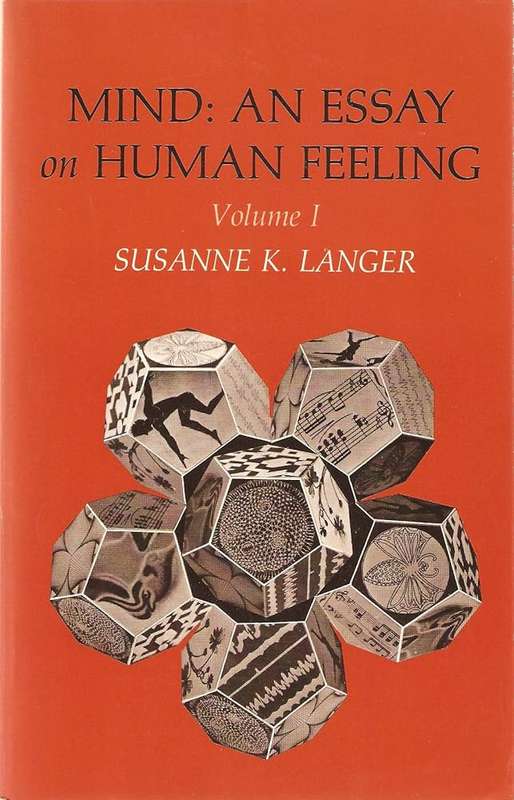
Mind: An Essay on Human Feeling, Volume One (Susanne Langer)
Check my rate
| Main centres: | 1-3 business days |
| Regional areas: | 3-4 business days |
| Remote areas: | 3-5 business days |

| Main centres: | 1-3 business days |
| Regional areas: | 3-4 business days |
| Remote areas: | 3-5 business days |
John Hopkins University, 1975, softcover, illustrated, index, 487 pages, condition: very good.
Susanne Langers book, while an essay on mind and feelings, relies heavily on a discussion of the nature of art. She argues that art is the expression, in sensual or material form, of feelings, which she defines in a very broad way to include everything from perceptions to complicated impressions, and certainly including emotions. Within art she is including visual arts, as well as music, drama, sculpture, dance, literature, architecture and probably others. She basically says that art expresses a feeling that the artist has in the form of colors, or sounds, or movements, or other medium characteristic of the art form involved.
In taking this position she reminds me of other philosophers who take a similar approach, such as John Dewey, who wrote Art as Experience, which conveys the idea of art as the experience of the artist as well as of the audience. Another such philosopher is my one-time mentor, Arthur Danto, who wrote Embodied Meanings, again emphasizing that art puts into material form something of the life of the artist. Danto studied under Susanne Langer at Columbia University, where John Dewey was an earlier presence.
Langer has a wide range of experience in the arts, quoting extensively from artists, writers, musicians and other art professionals. There are references and excerpts from musical works in musical notation. Many of the footnotes are in French or German, which I am trained to read, but which I am daunted by the effort to work out. Her erudition is impressive.
She also devotes considerable energy to bridging the gap between the material sciences and the realm of the artist, including examining how life arises in chemical and biological terms, and becomes capable of the life of the mind and the feelings expressed in art. Her use of sources from scientific literature again goes way beyond my ability to evaluate.
Her ideas are stimulating, such as examining how agency or periodicity bridges the gap between the material world and the artistic world.
Susanne Langer was an American philosopher, writer, and educator known for her theories on the influences of art on the mind. She was one of the earliest American women to achieve an academic career in philosophy and the first woman to be professionally recognized as an American philosopher. Langer is best remembered for her 1942 book Philosophy in a New Key, which was followed by a sequel, Feeling and Form: A Theory of Art, in 1953. In 1960, Langer was elected a Fellow of the American Academy of Arts and Sciences.
Langer established the use of symbols as the "epistemic unit of community", suggesting that all knowledge in a community is gained and built from shared symbol-systems within a given culture. Langer's concept regarding language and dialogue may be understood to imply that language does not simply communicate, but it produces symbols from which humans then create their own reality. Claimed support of this perspective comes from Langer's statement that "language is intrinsic to thinking, imagining, even our ways of perceiving".